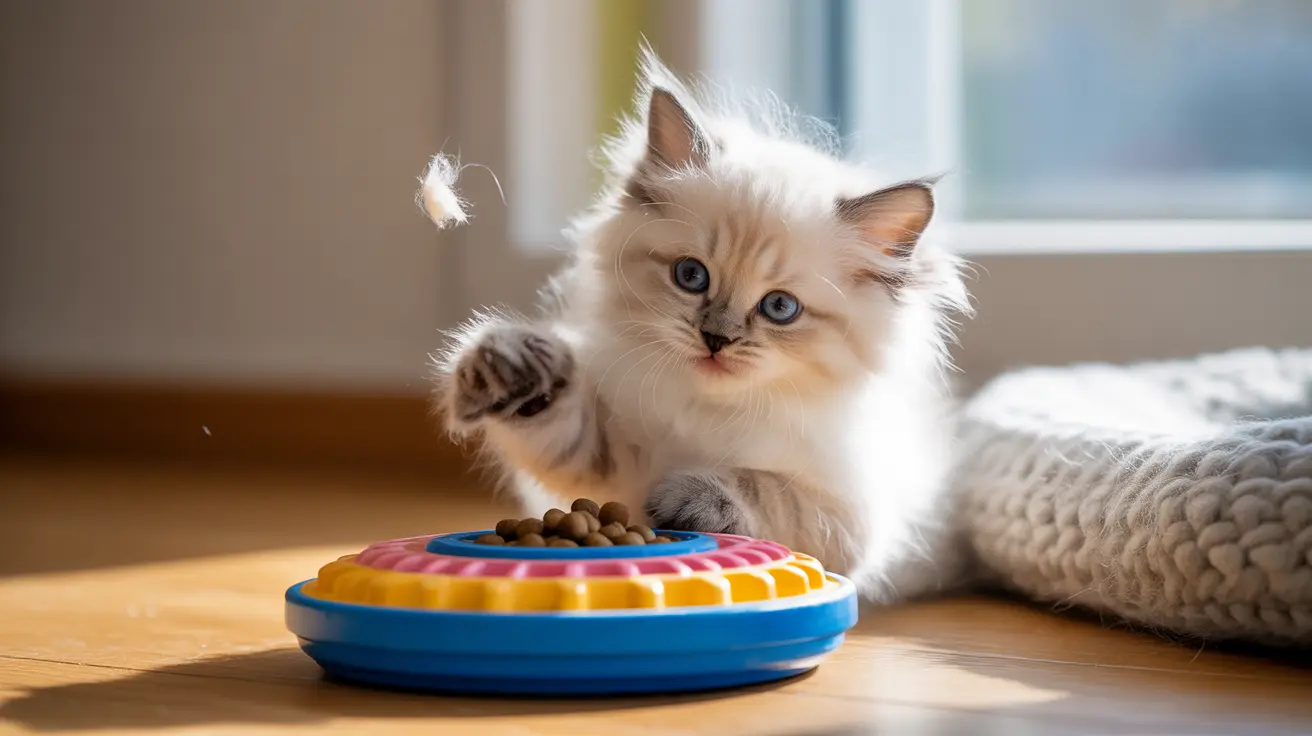Understanding Kitten Overeating: Causes and Concerns
Kitten overeating is a common challenge that many pet parents face, potentially leading to serious health issues if not addressed early. While young kittens naturally self-regulate their food intake during the first few months of life, this ability often diminishes as they grow older, making it crucial for owners to understand and manage their feeding habits.
As your kitten develops, several factors can contribute to overeating behaviors, including stress, competition with other pets, and the constant availability of food. Understanding these triggers is the first step in preventing weight-related health issues and establishing healthy eating patterns for your growing feline.
Signs Your Kitten Is Overeating
Recognizing the signs of kitten overeating early can help prevent long-term health complications. Watch for these key indicators:
- Rapid weight gain beyond normal growth
- Constant begging for food
- Eating too quickly and vomiting after meals
- Lethargy or decreased activity levels
- Visible distention of the belly after eating
Health Risks of Kitten Overeating
Excessive food consumption in kittens can lead to several serious health concerns:
- Obesity and weight-related joint problems
- Diabetes risk in later life
- Digestive issues and vomiting
- Abnormal growth patterns
- Increased risk of fatty liver disease
Effective Prevention Strategies
Portion Control
Implementing proper portion control is essential for preventing kitten overeating. Use measured amounts of food appropriate for your kitten's age and weight, following packaging guidelines and veterinary recommendations.
Feeding Schedule
Establish a consistent feeding schedule with specific meal times rather than free-feeding. Most kittens should be fed 3-4 times daily until six months of age, then transition to 2-3 meals per day.
Environmental Enrichment
Create an enriching environment that discourages overeating through boredom:
- Interactive toys and play sessions
- Puzzle feeders and food-dispensing toys
- Multiple feeding stations for multi-cat households
- Regular exercise and playtime
Monitoring and Management
Regular monitoring of your kitten's weight and body condition is crucial. Work with your veterinarian to establish healthy growth targets and adjust feeding amounts accordingly. Keep a log of your kitten's weight and eating patterns to track progress effectively.
Frequently Asked Questions
How can I tell if my kitten is overeating and what are the signs to watch for?
Look for signs such as rapid weight gain, constant begging, vomiting after meals, and decreased activity levels. A healthy kitten should have a visible waist and you should be able to feel (but not see) their ribs.
What are the health risks associated with overeating and obesity in kittens?
Overeating can lead to obesity, diabetes, joint problems, digestive issues, and fatty liver disease. It can also affect normal growth and development, potentially causing lifelong health issues.
How can I prevent my kitten from overeating and gaining too much weight?
Implement portion control, establish regular feeding schedules, use appropriate feeding tools, and ensure regular exercise. Avoid free-feeding and monitor treat intake carefully.
Are slow feeders or puzzle feeders effective in managing a kitten's eating habits?
Yes, slow feeders and puzzle feeders are very effective in managing eating speed and providing mental stimulation. They help prevent gulping and make meals more engaging for your kitten.
When should I transition my kitten from free feeding to scheduled meals to avoid overeating?
Start transitioning your kitten to scheduled meals around 12-16 weeks of age. By six months, they should be on a regular feeding schedule with measured portions.
Conclusion
Managing kitten overeating requires attention, consistency, and proper planning. By implementing appropriate feeding strategies early and maintaining regular monitoring, you can help your kitten develop healthy eating habits that will benefit them throughout their life. Remember to consult with your veterinarian for personalized advice based on your kitten's specific needs and circumstances.






